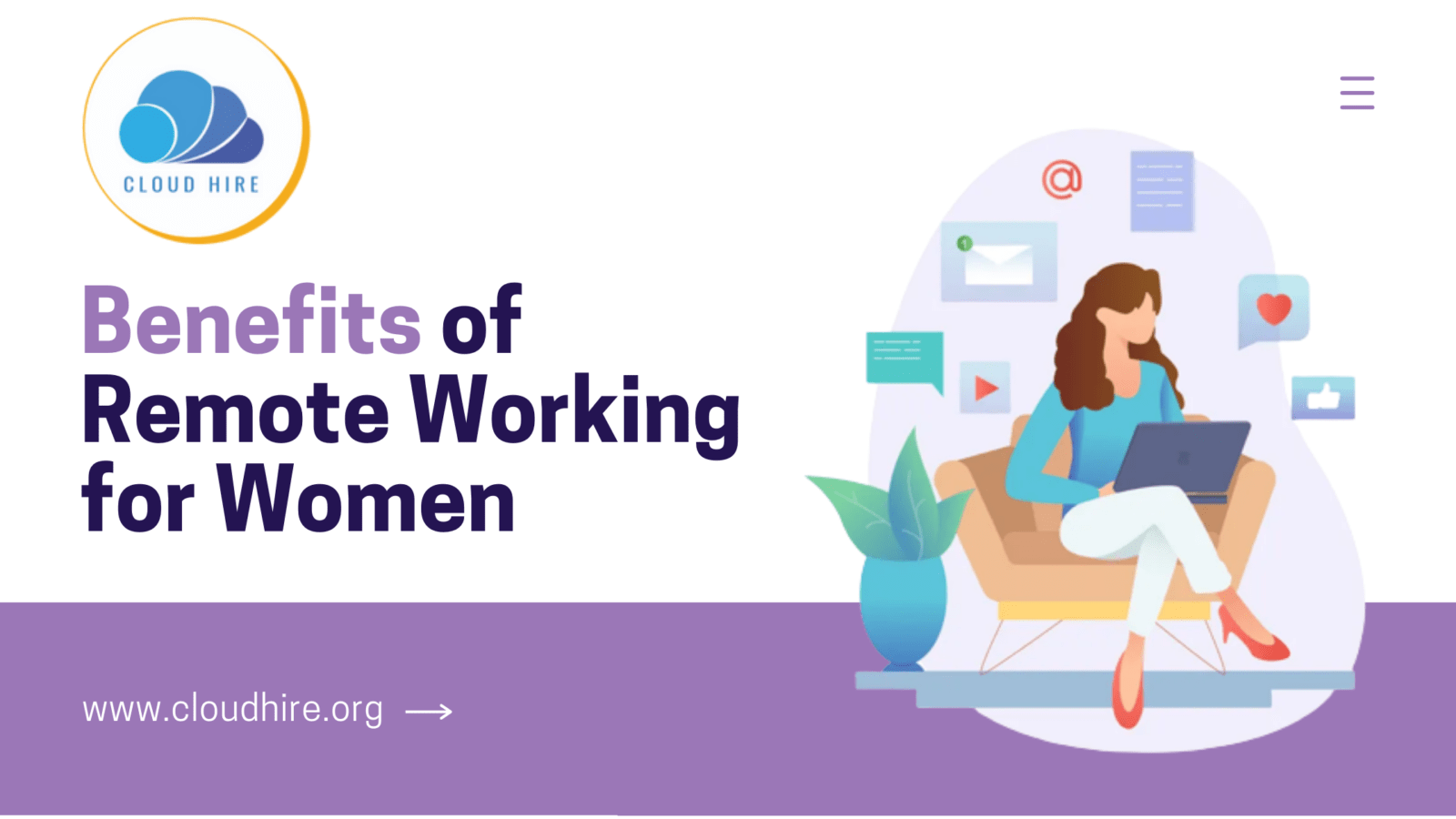In the past, being a female and mother has proved to hinder career success because a woman is likely to face challenges when it comes to focusing full-time on their jobs. However, remote workplaces have eliminated these obstacles as they offer working mothers a solution to increase their productivity.
Women in the era of remote work: What’s new and what’s next?
What is a Remote Working?
A remote workplace is one where employees are not physically present at the work site. They may work from home, a coffee shop, or any other location with an internet connection. This type of arrangement can benefit women in several ways.
For starters, it can provide greater flexibility in terms of hours and working from home. This can be especially helpful for mothers who need to balance work with childcare responsibilities. It can also allow women to avoid long commutes and save on childcare costs.
In addition, remote work can help women advance their careers by providing access to new opportunities that they might not otherwise have. It can also give them a chance to build their businesses or pursue other entrepreneurial ventures. Overall, remote work can be a great option for women who want to achieve a better work-life balance or who are looking for new career opportunities.
Working Remotely: How To Make It Work For You
Benefits of Remote Working for Women:
A remote workplace is a work environment where employees are not physically present in the office. They may work from home, a coffee shop, or any other location with an internet connection.
This type of arrangement is often thought of as the ideal situation for working mothers. Here are some of the benefits of a remote workplace for women:
Flexibility:
One of the biggest advantages of a remote workplace is the flexibility it offers. Working mothers can structure their day around their children’s schedules, and don’t have to worry about finding childcare. They can also take care of personal errands during the day, without having to use precious vacation time or miss important work deadlines.
Avoiding Office Politics:
Another big advantage of working remotely is that it can help you avoid office politics. In a traditional office setting, there can be a lot of competition for plum assignments and credit for good ideas. This can be especially difficult for women, who may already feel like they have to fight harder than men to be taken seriously and be given opportunities to advance. When you work remotely, you can focus on doing your best work without worrying about office politics.
More Time:
The benefits of working remotely are many, but one of the biggest benefits is the extra time it affords women. Without a commute, women have more time to spend with their families, or on personal pursuits. They can also use that extra time to further their careers by taking on additional assignments or pursuing advanced degrees.
Reasons for a Remote Working:
There are many reasons why remote workplaces can benefit women. Perhaps the most obvious is that it can help to promote gender equality in the workplace. By allowing women to work from home, or from anywhere else they choose, remote workplaces can level the playing field and create opportunities for women that might not otherwise be available.
In addition, remote working can help to reduce workplace sexism and harassment. If women are not physically present in the workplace, they are less likely to be subjected to unwelcome comments or advances from male co-workers. This can create a more positive and productive work environment for everyone involved.
Another benefit of remote working is that it can allow women to better balance their work and family obligations. Women who work remotely can often have more flexible schedules that allow them to better care for their children or other family members. This can lead to improved work-life balance and greater satisfaction with both work and home life.
Overall, there are many reasons why remote workplaces can be beneficial for women. By promoting gender equality, reducing workplace sexism, and increasing work-life balance, remote workplaces can help women to succeed both professionally and personally.
How to Start a Remote Working?
There are many benefits to remote workplaces for women, including the ability to control one’s schedule, work from home, and avoid office politics. While remote work is not a perfect solution for everyone, it can be a great way to improve work/life balance and increase productivity. If you’re thinking of making the switch to a remote workplace, here are a few things to keep in mind:
Define your goals:
What do you hope to achieve by working remotely? Whether it’s more flexibility, fewer distractions, or the ability to travel more, having a clear idea of your motivation will help you make the transition.
Research your options:
There are many different types of remote work arrangements, from freelancing to telecommuting. Consider what would work best for you and your lifestyle.
Create a support system:
Talk to friends and family about your decision to work remotely, and let them know how they can help you succeed. You may also want to join an online community of other remote workers.
Set up your home office:
Invest in comfortable furniture and office supplies that will help you be productive while working from home.
Make a plan for dealing:
Set realistic goals for what you want to accomplish each day. And stick to that plan as much as possible.
Challenges of remote working:
The way we work is changing. With advances in technology, more and more people can work remotely, from anywhere in the world. This is especially beneficial for women, who often face challenges in the workplace, such as discrimination and the so-called ‘glass ceiling’.
Working remotely gives women the opportunity to create flexible schedules, which can be a lifesaver for busy moms. Additionally, working from home can help women avoid office politics and the potential for sexual harassment. And because remote workers are not tied to one location, they have the opportunity to live and work in places that are more affordable and family-friendly. Of course, working remotely isn’t without its challenges. Isolation and loneliness are common among remote workers, as is the struggle to find a good work/life balance. But for women who are looking for greater flexibility and autonomy in their careers, remote working is worth considering.
Conclusion:
Overall, remote workplaces can be extremely beneficial for women. They provide a level of flexibility that can be difficult to find in traditional work environments and can help to eliminate some of the obstacles that women face in the workplace. If you are a woman who is considering a remote workplace, we hope that this article has given you some insight into the many benefits that you could experience.








